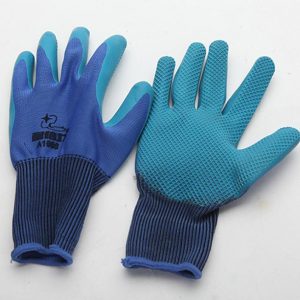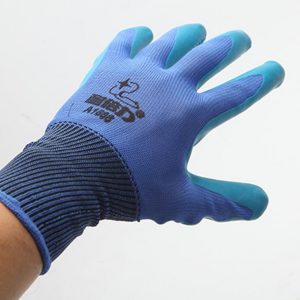Nitrile gloves are indeed considered one of the best options for auto mechanics when it comes to hand protection. They offer several advantages that make them the ultimate choice for this profession:
- Chemical Resistance: Auto mechanics often deal with various chemicals, oils, lubricants, and solvents while working on vehicles. Nitrile gloves provide excellent resistance to these substances, protecting the skin from potential irritants or harmful chemicals.
- Oil Resistance: Nitrile gloves are specifically designed to be resistant to oils and greases. This is particularly beneficial in an automotive environment, where the hands frequently come into contact with oily engine components and other automotive fluids.
- Durability: Auto mechanics require gloves that can withstand the rigorous demands of their work. Nitrile gloves are known for their durability and puncture resistance, reducing the risk of tears or punctures when handling sharp or abrasive tools and parts.
- Allergen-Free: Similar to the advantage mentioned earlier, nitrile gloves are free from natural rubber latex proteins, making them an ideal choice for individuals with latex allergies.
- Comfort and Fit: Nitrile gloves offer a comfortable fit and good tactile sensitivity, allowing auto mechanics to perform intricate tasks with ease. The gloves do not hinder dexterity, which is essential for handling small parts and tools.
- Protection against Contaminants: Whether it’s grease, oil, dirt, or grime, nitrile gloves create a protective barrier that prevents these contaminants from coming into direct contact with the skin, keeping the hands cleaner and minimizing the risk of cross-contamination.
- Disposable and Hygienic: Nitrile gloves are disposable, which means auto mechanics can easily discard them after each use. This ensures a fresh pair of gloves for every job, maintaining a higher level of hygiene in the workplace.
- Availability: Nitrile gloves are widely available in various sizes, making it easy for auto mechanics to find gloves that fit comfortably and securely.
It’s important to note that while nitrile gloves provide excellent protection, they may not be suitable for all tasks an auto mechanic performs. In some cases, mechanics may need to use specialized gloves, such as heat-resistant gloves for welding or cut-resistant gloves for working with sharp metal edges. Assessing the specific requirements of each task and choosing the appropriate glove accordingly is crucial to ensure optimal hand protection in an automotive setting.
















